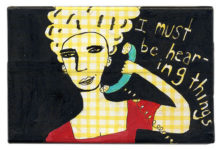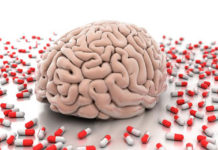What is Contributory Injustice in Psychiatry?
An article on contributory injustice describes the clinical and ethical imperative that clinicians listen to service users experiences.
“Robert Neugeboren, Survivor of Psychiatric Abuses, Dies at 72”
Robert Neugeboren, who “spent most of his adult life in institutions, often subject to isolation, physical punishment and numbing medication,” was “a celebrity of sorts in the world of the mentally ill: a survivor of the horrors of mistreatment, a case history for those who point to the positive effects of kindness and talk therapy, and, perhaps most of all, the embodiment of the bottomless mystery of the human mind.”
Antipsychotics Aren’t Helpful to Children
Researchers from London, writing in European Psychiatry, reviewed "all RCTs involving children and young people with a diagnosis of childhood onset schizophrenia comparing any...
The Unique Way the Dutch Treat Mentally Ill Prisoners
In this piece for BBC, Melissa Hogenboom reports on the way that people who have been convicted of crimes and diagnosed with mental illness are...
“Alternative Therapies Should Be Considered Before Antipsychotics for Children”
The official voice of the American Psychiatric Association covers the short and long term side-effects of antipsychotics and promotes the use of therapeutic alternatives...
“Too Many PA Foster Children are on Psychiatric Meds”
For Philly.com, staff writer Stacey Burling reports on the PolicyLab analysis of psychiatric drug use among Pennsylvania children on Medicaid. “Many children in foster...
The Role of Context, Language, and Meaning in Hearing Voices
Sociocultural context, language, and sense-making process are among concepts that can help hearers and providers better understand the phenomenon of hearing voices
New Research Suggests Brain Abnormalities in ‘Schizophrenia’ May Result From Antipsychotics
Study finds that reduced cortical thickness and brain surface area associated with 'schizophrenia' may result from antipsychotic drug use.
Treating Schizophrenia Before Children Have It
NPR Shots discusses the plethora of new programs for early intervention for psychosis, with a focus on Ventura Early Intervention Prevention Services, operated by...
Trauma, Psychosis, and Dissociation
Recent years have seen an influx of numerous studies providing an undeniable link between childhood/ chronic trauma and psychotic states. Although many researchers (i.e., Richard Bentall, Anthony Morrison, John Read) have been publishing and speaking at events around the world discussing the implications of this link, they are still largely ignored by mainstream practitioners, researchers, and even those with lived experience. While this may be partially due to an understandable (but not necessarily defensible) tendency to deny the existence of trauma, in general, there are also certainly many political, ideological, and financial reasons for this as well.
Service-Users See Long-Term Antipsychotic Use as Compromising Recovery, Review Finds
A new meta-review examines the experiences of antipsychotic drugs use among people diagnosed with a psychotic disorder.
Perceived Social Status Impacts Early Psychosis
Writing in the British Journal of Clinical Psychology, London researchers find that perceptions of lower social rank and inferiority amongst 24 individuals with early...
Group Mindfulness Shows Promise Reducing Depression Associated with Hearing Voices
A new study out of Kings College London found that twelve sessions of a group mindfulness-based therapy relieved distress associated with hearing voices while reducing depression over the long-term. The person-based cognitive therapy (PBCT) intervention had significant effects on depression, voice distress, voice controllability and overall recovery.
Madness and Play: Exploring the Boundary
When children do things like recoil in fear from monsters and ghosts in their darkened bedroom at night, it’s easy to see the “out of touch with reality” aspect of their experience as being closely related to the faculty that gives them their ability to play – their imagination. We help children through such challenging experiences by being with them, and by playing together, doing things like creating scary images together and then figuring out how to cope with them or laugh at them. In the process we help them explore how to create a world view that works to at least some extent and has room for joy and originality - when their imagination helps them (and maybe others) see the world in new ways.
Duty to Warn – 14 Lies That Our Psychiatry Professors in Medical School Taught...
Revealing the false information provided about psychiatry should cause any thinking person, patient, thought-leader or politician to wonder: “how many otherwise normal or potentially curable people over the last half century of psych drug propaganda have actually been mis-labeled as mentally ill (and then mis-treated) and sent down the convoluted path of therapeutic misadventures – heading toward oblivion?”
Hearing Voices Network Responds to Susan Inman HuffPo Piece
On Saturday morning, Susan Inman, writing for HuffPost Canada, published “What You’re not Hearing About the Hearing Voices Movement.” In it, she criticizes HVM for “failing to differentiate between the needs of people who actually have psychotic disorders and those who don't.” On Sunday the Bay Area Hearing Voices Network published an open letter in response, writing: “Ms. Inman has profoundly mischaracterized hearing voices networks (HVNs) and also demonstrates a troubling lack of understanding of the empirical literature on psychosis, optimal psychosocial intervention and recovery.”
Large German Anti-Stigma Campaign Shows Little Effect on Attitudes
“Overall, this study showed that the information and awareness campaign had almost no significant effects on the general public's attitudes toward people affected by either schizophrenia or depression,” the researchers, led by German medical sociologist Anna Makowski, wrote. “One could assume that deeply rooted convictions cannot be modified by rather time-limited and general activities targeted at the public.”
Canadian Study Links Cannabis and Psychosis in Youth
The Cannabis and Psychosis Awareness Project, a four-year study from Canada that was released on Tuesday, finds that smoking marijuana - particularly heavy use in...
Valuing Posttraumatic Growth in Psychosis
Individuals who experience psychosis can also experience posttraumatic growth, which can be a central component of the recovery paradigm.
Psychiatrist Asks Field to Drop Schizophrenia Classification
Dutch psychiatrist and epidemiologist, Jim van Os, has renewed his call to drop schizophrenia as a disease classification. “Several recent papers by different authors...
Barriers to Engaging in Self-Help CBT for Voice Hearing
Individuals with lived experience and clinicians share about barriers and facilitators to guided self-help CBT for voice hearing.
Letters to the Editor: “The Treatment of Choice”
Readers respond to the New York Times article, “The Treatment of Choice,” about innovative programs for psychosis and schizophrenia that involve patients and their families in treatment decisions. “Narratives of success counter a drumbeat of faulty links of mental illness and violence, inaccuracies which serve only to further stigmatize and isolate individuals with psychiatric illness.”
Are You Ready for Multiple Lawsuits By Victims of Psychiatric Misconduct?
Professor Leigh Turner of the University of Minnesota Center for Bioethics blasts the Board of Regents for ignoring psychiatric research abuse.
Patients on Antipsychotics at High Risk for Cardiovascular Issues, Study Finds
Antipsychotics present a known risk for major side effects. A new study suggests that certain antipsychotics may present a greater risk for cardiovascular disease than others.
Nightmares in Childhood Associated With Later Psychosis
Children who reported experiencing frequent nightmares between 2.5 and 9 years of age were significantly more likely to report psychotic experiences at age 12, regardless...

















